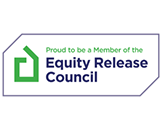Emergency Financing: How to Secure Quick Loans and Bridging Finance
Emergencies can happen any time. Whether it's a medical emergency, urgent business expense, or temporary cash flow issue, finding the right financial solution is of the essence.
In difficult times like these, emergency loans can be the hero that can help you make it through these uncertainties.
At The Lending Channel, we understand the challenges that come with sudden financial needs. As a reliable mortgage adviser in Scotland, we're here to guide you through your options and provide you with professional advice based on your situation.
This blog will tackle the essentials of securing quick loans and bridging finance to make sure you're equipped with the right knowledge once an unexpected expense strikes.
Read below!
Understanding Emergency Loans: When and Why You Might Need One
Emergency loan is a type of financial solution designed for individuals looking to secure quick funding to cover a sudden expense. Most of these loans are typically unsecured - meaning they don't require collateral. You can borrow a specific amount of money and pay it according to the agreed terms.
When you might need an emergency loan
There are certain situations when you are needed to apply for an emergency loan to help you manage unforeseen expenses. This situation can be:

-
Home repairs: An emergency loan can cover the costs of major home repairs that require immediate attention. It can be a roof leak during rainy season, or damaged boiler in the middle of winter. Addressing these issues immediately prevents further damage and ensures your home remains safe.
-
Car maintenance: If your car suddenly breaks down, and you use it for work or business every day, you can use emergency loans to pay for the repairs to get you back on the road quickly.
-
Emergency dental work (or other medical emergencies): Health issues should be addressed promptly. No matter if it's an emergency dental procedure or another medical expense, applying for an urgent loan can make sure you or your loved ones received the necessary care without delay.
-
Travel for family obligations: Life events like family emergencies or funerals often require sudden travel. Emergency loan can offset the last-minute travel expenses to fulfil important family obligations.
-
Bills during job lay off: If you've been laid off and are struggling to pay your regular bills, emergency loan can be your temporary financial cushion until you get back on your feet. This way, you can avoid late fees, penalties, and damage to your credit score.
When an emergency cash loan is not needed
Emergency loans have "emergency" on its name for a reason - to be used for urgent, critical situations. Here are some examples when applying for an emergency loan might not be appropriate:
-
Vacations: It's important to take a break from time to time. However, using an emergency loan for a holiday is not advisable. Prepare for your vacation beforehand by saving money in advance to avoid accumulating debt that might be difficult to repay.
-
Celebrations: It can be costly to throw big events such as wedding and birthday parties. Yet, it doesn't mean that these celebrations count as emergencies. Same as vacation, planning and budgeting in advance can help you manage the expenses for celebrations.
-
Less costly options: If you can opt for other cost-effective solutions aside from emergency loans, go for it. For example, you can ask for payment plans instead of taking a loan.
Bridging Loans: What they are and how they work
A bridging loan is a type of short-term financing that provides quick access to funds while waiting for the availability of secured or long-term financing. These loans are common in property-related transactions, but it can also be used for business purposes, temporary cash flows, and other emergency expenses.

How does it work?
Both individuals and companies can apply for bridging loans to temporarily cover their expenses until the financing they need becomes available.
For example, a homeowner puts their property up for sale and wants to purchase a new home. They can use bridging loan to buy a property and pay it off once their current home sell. Another example is when a company recently moved to a new office space and needs funds to renovate and furnish the property.
This company already applied for a long-term loan, but the process is taking too long and the renovation has to be done immediately, so they can move by the end of the year. To fix this, the company can apply for a bridging loan to pay the renovation while waiting for the long-term loan to be approved.
The pros of bridge loan in the UK
Bridge loans are an effective finance solution, especially for those who needs to secure funds quickly. Some of the main advantages that bridging loans offer include:
-
Short term loans are generally more adaptable than a regular loan. Specialist finance of this type is not always authorised and regulated by the Financial Conduct Authority. Therefore, lenders can afford to adopt a more flexible approach to assessing deals.
-
Bridge loans can be arranged immediately, sometimes within days. This allows you to make instant purchases that would be impossible with a regular mortgage or loan.
-
Instead of using your credit history or income, your suitability for bridge loans is determined by the property value. This gives people with difficult credit records or income issues a good chance of being accepted.
What are the cons of bridge loan?
While bridge loans can provide quick access to funds, they also come with some disadvantages that borrowers should consider before applying for one. These include:
-
Bridge loans tend to have higher interest rates and fees than traditional loans, which can add up quickly over the short repayment period.
-
For late repayments, borrowers may face penalty fees and the lender may take possession of the collateral. This can be especially risky if the collateral is the borrower's existing property, as they may be at risk of losing their home if they cannot repay the loan.
-
Bridge loans are often used to finance property purchases, which can be a risky investment if property values decline or the property cannot be sold for the expected price.
-
Bridge loans are a short-term financing option and may not be suitable for borrowers who need a longer-term solution.
Types of bridging loans
There are different types of bridge loans , each with their own rules in terms of repayment. Two of the most commonly used are:
-
Closed bridging loan: This type of bridging loan has a fixed repayment date when payment is expected. There will be a short time of months or even weeks to repay what you owe.
-
Open bridging loan: On the other hand, this type of bridging loan has no set end date and can be repaid whenever the funds become available. These usually last for about 12 months.
Unsurprisingly, an open bridging loan costs more than a closed bridging loan because they are more flexible and pose a higher risk for the lenders.
The application process: How to secure funding fast
When facing an urgent financial need, it's crucial to understand how you can secure these funds. If you're applying for a bridging loan, here's the typical application process that you have to go through:
1. Initial consideration
Before applying for bridging loan, make sure that it is the right funding you need. You can consider the following factors when deciding:
-
The amount of money you need
-
How much your property is worth
-
Whether you have a mortgage
-
How long you need to repay the loan.
Your individual answers to these questions will form the basis of what loan type is right for you. You should also check if you qualify for a bridging loan in case you decided to apply for it. Keep in mind that lenders will look for:
-
Those who can and those who can not prove income
-
Those with an excellent or a bad credit rating
-
The employed, self-employed or non-employed
-
Companies or individuals
-
Those with equity tied into their property or an available cash deposit.
2. Prepare necessary documents
After deciding that bridging loan is the right type of financial solution for you, it's time to prepare the necessary documents needed for the application. Lenders require specific information to assess your financial situation and determine your eligibility. Here are the documents you need to prepare:
-
Identification: You need to present any valid form of identification, such as passport or driving licence, to verify your identity.
-
Proof of address: Confirm your residency by preparing a recent utility bill, council tax statement, or any document that shows your current address.
-
Evidence of assets: These documents show you financial assets like property deeds, investment statements, or savings account to prove your financial stability.
-
Evidence of liabilities: Lenders will also ask if you have any existing debts or financial obligations. It's best to be transparent and provide details of mortgages, loans, and credit card balances that you have.
-
Bank statements (three previous months): These statements give lenders an insight into your regular income and expenditure. This will help them assess whether you can repay the loan or not.
3. Devise an exit strategy
When applying for emergency funding, it's critical to develop a clear exit strategy. An exit strategy is your plan on how you can repay the loan within the agreed timeframe, and it's something lenders will look for to guarantee that you can manage the repayment. Some strategies to include are:
-
Understand your repayment plan: Consider how you will repay the loan you took out. Decide whether you're going to use your next pay cheque, sell an asset, or anticipate funds from another source.
-
Consider the loan term: Emergency loans are typically short-term. Review the loan term carefully to make sure it aligns with your financial situation.
-
Plan for contingencies: It's always wise to have a back-up plan in case your primary source falls through. Set aside some funds or identify an alternative income source, so you will be prepared for any unforeseen circumstances.
-
Communicate with you lender: Once you find yourself having difficulties with your monthly repayments, communicate with your lender as soon as possible. Many lenders are willing to work with borrowers to address these issues. This way, you can avoid penalties and maintain a positive relationship with your lender.
4. Partner with a reliable broker
Partnering with a reliable broker can make all the difference when applying for a loan. A broker acts as the middleman between you and potential lenders. Some benefits they can offer are:
-
Access to a wide range of lenders
-
Expert guidance through the process
-
Tailored solutions based on your needs
-
Hassle-free and time-efficient application
-
Transparent service
5. Application and approval
Once you have the documents and a solid plan, the next step is to submit your loan application. Speed is often critical in emergency situations, so ensuring your application is complete and accurate is essential. Working with a broker can help you expedite the process, streamline communication with the lender, and keep you informed at every stage.
Interest rates and repayment terms: What to expect
Bridge loans are designed to be short term, and it generally charges month-to-month interest rates. Therefore, a slight difference in interest rate can dramatically affect the overall repayment cost of a bridge loan.
Still, the interest is not always charged month by month. A regulated bridging loan (a loan secured against or used to purchase a property) includes the option of "rolling" up your loan's interest. This means that at the end of your term of finance, you pay the bridge loan interest rates in one via the exit strategy agreement. This is an alternative to incurring monthly interest rate payments, which can be a financial burden.
This structure can be helpful to homeowners who want to use the loan entirely for the purchase of their new property. It also helps relieve the financial strain on those already keeping up payments for a residential mortgage. Be aware that if you choose this route, your total will include the interest of the loan.
If you are a non-regulated investor borrower, you can also choose this option. This can relieve the pressure on immediate cash flow throughout the project, as you avoid monthly interest rates.

Alternatives to emergency loans: Exploring other options
An emergency loan might seem like the most straightforward solution when you need quick access to money. However, before diving into emergency financing, it's worth exploring alternative options that could be more cost-effective and less stressful in the long term.
Let's look at several alternatives to emergency loans that may be more suitable depending on your situation.
-
Credit cards: Credit card can be a practical alternative to emergency loans. Many people find them convenient for covering costs such as emergency repairs or medical bills. Nevertheless, you should be aware of the interest and fees associate with cash advances and balances in your credit card. Pay it off as soon as possible to avoid high-interest charges.
-
Salary advances: Some employers offer the option for their employees to receive their wages before the payday. If you're an employee, you can ask your employer if they this kind of program when an emergency arises. Salary advances are typically repaid from your next pay cheque, which makes it more manageable than taking out a loan.
-
Borrowing from family or friends: If you have a trusted relationship with family or friends, borrowing money from them could be a viable solution when you need emergency money. This option often comes without the interest rates and fees that accompany traditional loans. Even so, you should approach this option with care to ensure that both parties agree on clear terms to prevent misunderstandings or strain on the relationship.
-
Government assistance: For those facing a severe financial crisis, government assistance programmes might be available. Local councils generally offer emergency funds or grants to individuals in need. These options can provide necessary support without the burden of high-interest repayments, but they may have specific eligibility criteria and application processes.
-
Emergency fund: An emergency fund is specifically designed to cover unexpected costs, providing a financial safety net without the need to take on additional debt. After using your emergency fund, it’s wise to prioritise replenishing it to make sure you’re prepared for future emergencies.

Expert advice: Managing urgent financial situations
At The Lending Channel, we specialise in securing the necessary funding for individuals and businesses across Scotland and the UK. Our team of expert mortgage advisors is dedicated to helping you navigate urgent financial situations with confidence and clarity.
Here, we offer practical advice to help you manage these circumstances successfully.
-
Assess the situation calmly: The first step to take during a financial emergency is to take a deep breath and assess the situation calmly. List all the expenses you need to cover and check the available resources you have, including savings, credit, or potential loans.
-
Prioritise your needs: Identify which financial needs requires immediate attention and prioritise them. This includes paying essential living expenses, urgent medical bills, or necessary repairs. Focus on the most urgent issues first to make sure your basic or immediate needs are met.
-
Explore all financing options: Before committing to a loan, explore all available options first. You can consider alternatives such as salary advances, borrowing from friends or family, or using a credit card. Our team can help you evaluate these options to find the most cost-effective solution for your situation.
-
Create a repayment plan: If you decide to take out a loan, it's essential to have a clear repayment plan in place. Make sure you understand the terms of the loan, including interest rates, total repayments, and repayment schedules. At The Lending Channel, we can work with you in creating a management repayment plan that fits your budget.
-
Seek professional guidance: Professional advice can be invaluable when dealing with urgent financial situations. The Lending Channel is here to offer professional guidance to help you make informed decisions. Whether you need advice or manage existing debts, we're here to support you every step of the way.
-
Plan for the future: After overcoming this crisis, it's important to take steps to avoid the same situation in the future. Building an emergency fund, reviewing your budget, and improving your credit score can all contribute to greater financial stability. At The Lending Channel, we can provide ongoing support to help you achieve long-term financial security.
FAQs: Common Questions About Emergency Financing
1. What is emergency financing?
Emergency financing refers to loans or credit options designed to provide quick access to funds during unexpected financial situations. These loans are typically processed faster than standard loans to help individuals cover urgent expenses like medical bills, home repairs, or other emergencies.
2. How quickly can I get an emergency loan?
The speed at which you can receive an emergency loan varies depending on the lender and your financial circumstances. Some lenders can approve and disburse funds within 24 hours, while other lenders may take a few days.
3. Can I apply for an emergency loan with bad credit?
Yes, you can apply for an emergency loan with bad credit, but your options may be more limited. Some lenders specialise in offering loans to individuals with poor credit history, although the interest rates might be higher. It's advisable to seek professional advice to find the most suitable loan for your situation.
4. How much can I borrow with an emergency loan?
The amount you can borrow with an emergency loan varies depending on the lender and your financial situation. Typically, emergency loans range from a few hundred to several thousand pounds. Your income, credit score, and the lender’s policies will influence the loan amount.
5. What interest rates should I expect for an emergency loan?
Interest rates for emergency loans can be higher than traditional loans due to the urgency and higher risk associated with them. The exact rate will depend on factors such as your credit score, the lender’s policies, and the type of loan you choose. Always compare rates and read the terms carefully before committing.
6. Are there alternatives to emergency loans?
Yes, there are alternatives to emergency loans. These include using credit cards, borrowing from family or friends, or applying for a salary advance. Additionally, you may be eligible for government assistance or might already have an emergency fund in place to cover unexpected expenses.
7. What should I do if I’m struggling to repay an emergency loan?
If you're struggling to repay an emergency loan, it’s important to act quickly. Contact your lender to discuss your situation; they may offer flexible repayment options or extend the loan term. At The Lending Channel, we encourage borrowers to communicate any difficulties they encounter so that we can provide support and advice on managing repayments.




.jpg)

.png)
























